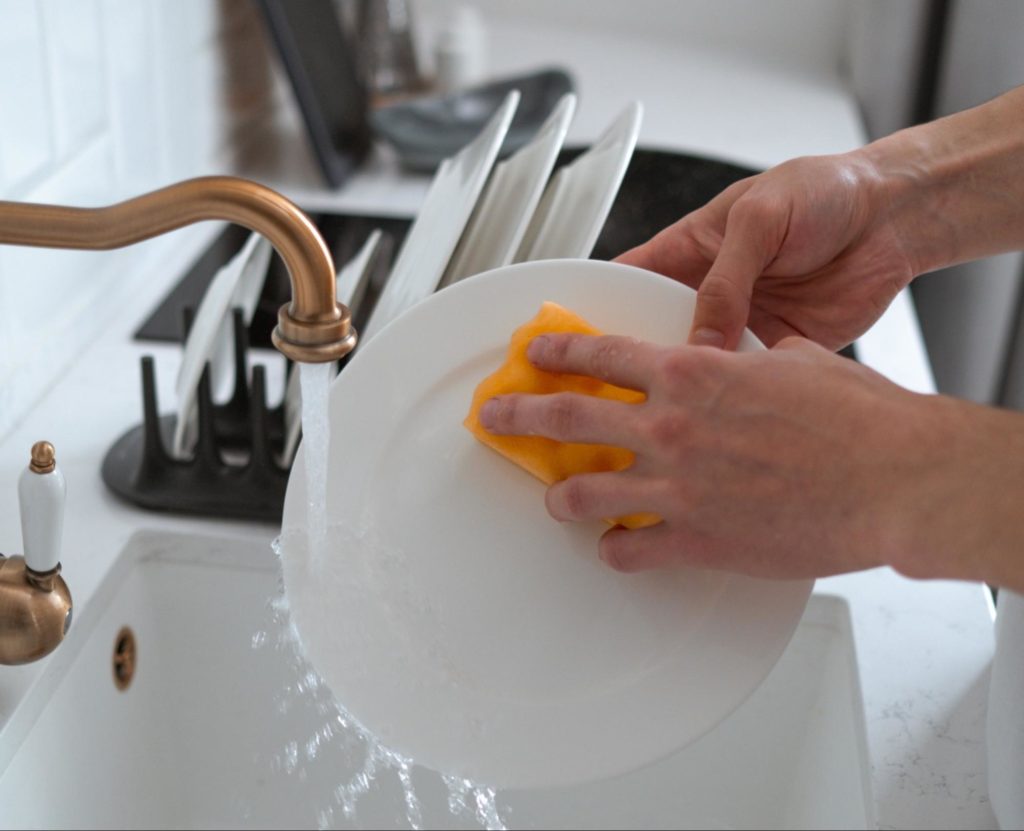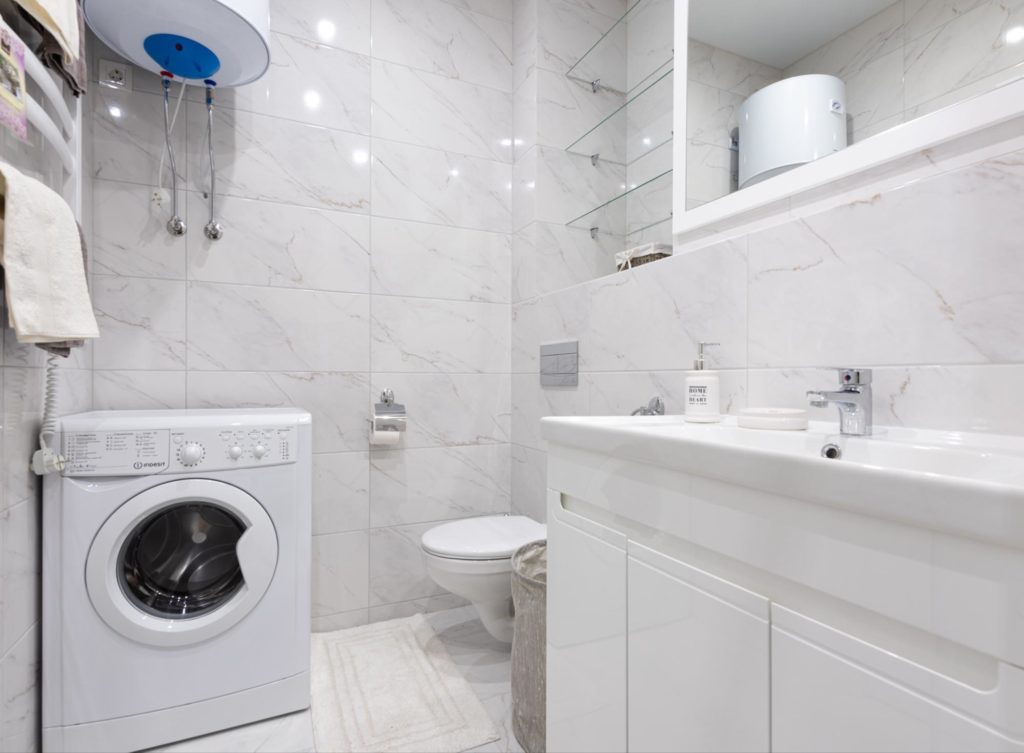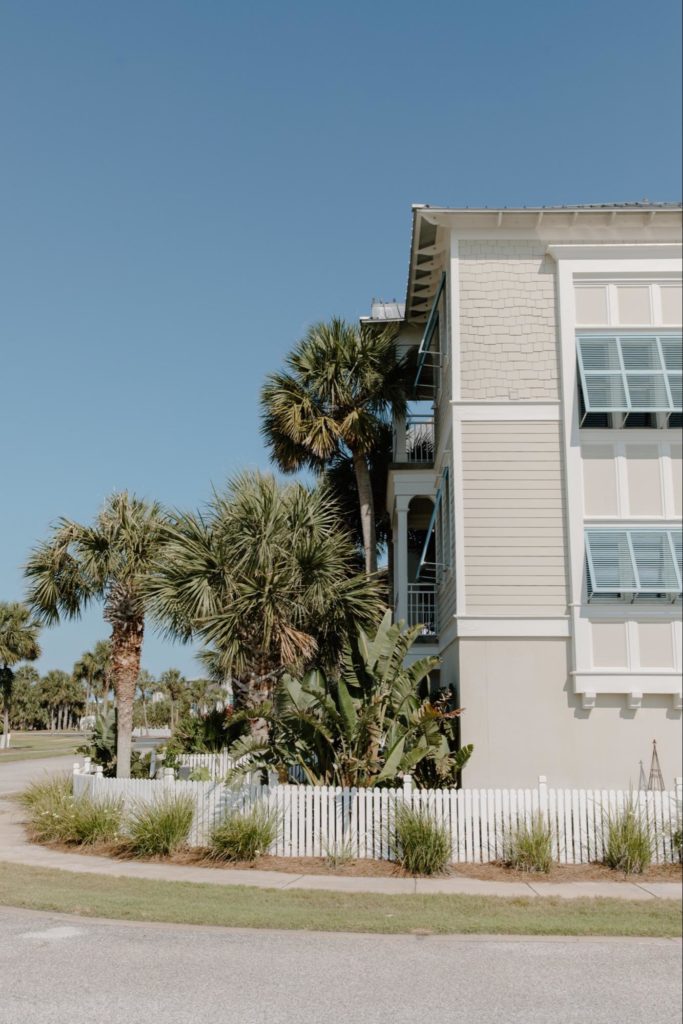Regular drain maintenance can help you to avoid blocked drains and having to call in the experts.
Drains are one of those things that we only tend to pay attention to when something goes wrong. The good news is that some smart advice and regular maintenance can prevent many of the major problems we experience with drainage. Let’s take a look around your home and explore common drain problems and how to prevent them.
What’s wrong with the drains in my kitchen?
What’s wrong with the drains in my bathroom?
What’s wrong with the drains in my laundry?
What’s wrong with my outside drains?
What’s wrong with the drains in my kitchen?
The main cause of problems in the kitchen is blocked drains. Sean Patrick, owner of East Coast Plumbing and Gas and experienced Master Plumber and Drainlayer, frequently gets asked to help with drains that are blocked by fat and food debris. He has some easy to follow recommendations to reduce the risk of blockages and keep drains flowing freely.
“You can reduce blockages by carefully scraping plates and dishes into the bin before you wash up or stack the dishwasher. You need to avoid pieces of food down the drain that can gather and cause partial blockages that hold up fat or over time block the whole pipe.
Fat residue on plates and dishes – particularly from meat or roasted food – should be scraped clean then rinsed in hot running tap water. Even the dish water you use to wash dishes is often not hot enough to dissolve fat and risks it accumulating in your pipes. Only good quantities of piping hot tap water will ensure the fat gets properly rinsed off and out of your pipe network.”
My kitchen sink is slow to drain – what should I do?
If your drain is slow to clear, start with a visual inspection and remove any visible debris. Partial blockages in pipes can often be resolved by flushing with a couple of kettles full of boiling water. Sean advises against using many of the store bought chemicals as they can accumulate and cause more damage than the original blockage. If boiling hot water
doesn’t shift the blockage then it’s definitely time to call a plumber.

How can I prevent my kitchen sink from blocking?
To keep your kitchen drains flowing, Sean recommends:
- A monthly flush down your sink drains with a couple of kettles full of boiling water. That should help to shift any build up that’s occurring in the pipes.
- Running your dishwasher empty on a hot cleaning cycle once a month. This will not only keep your dishwasher clean it will also help to ensure the pipes it connects to stay clear.
- Reduce the amount of food debris by scraping all plates and dishes into the bin before washing up.
- Add a sink catcher to your kitchen drain to catch any pieces of food debris that you miss in the clean up process.

What’s wrong with the drains in my bathroom?
The main cause of problems with drains in the bathroom is hair and soap, and occasionally objects like cotton buds that get accidentally dropped down the plug hole or toilet. Toilet blockage causes are usually quite obvious – being either an overload of what should go down there or something flushed down the toilet that shouldn’t be there.
Sean says, “Bathroom drains are designed to take water and soap, and toilets are designed for the 3 ps – pees, poos and paper. Most of the issues we see with bathroom drains are caused by something outside of these things.
Toilets can be blocked by things that shouldn’t be down there, or a sheer volume of what is down there being more than can be moved around the bend in the pipe. Hair is the main culprit in the shower and sink, where it can catch soap and cause blockages in the pipes.”
My bathroom sink, shower, or bath are slow to drain, what should I do?
With your sink, bath or shower start with a visual inspection and remove anything that shouldn’t be there. Try putting down a couple of kettles full of hot water and see if that gets things moving.
The most common cause of blockage is hair down the plug hole that traps soap and congeals. To get it moving you need hot water. If hot water doesn’t do it then it’s time to call in a plumber who can find out where the blockage is and remove it.
If your toilet is slow to drain it could be a sign of partial blockage by an overload of paper and poo or an object that’s been flushed and shouldn’t have been. Hot water and repeated flushing should remove the issue but if it doesn’t, it’s time to call a plumber.
In both situations you can also arm yourself with a plunger and see if moving the water through the blockage helps to shift it. Unfortunately if this doesn’t deliver results then you need expert help.
How can I prevent my bathroom drains or toilet from blocking?
To keep your bathroom drains and toilet flowing, Sean recommends:
- A monthly flush through your sink and shower trap with hot water to help keep the pipes clear
- Regularly removing hair from plugholes, and installing a hair catcher on your shower plughole
- Brushing your hair before you shower, to reduce hair fall when you are in the shower
- Use water as a tool to keep the toilet flowing freely, the full flush is much more effective at clearing your pipes than the half flush
- Keep the lid shut when the toilet is not in use to discourage children from flushing toys or objects
- Only put the 3 ps down your toilet – poos, pees and paper
- There is no such thing as a flushable wipe so all wipes should go into the bin.

What’s wrong with my laundry drains?
If your laundry drains are running slow, you may have a build up of lint or fluff or a partial blockage. Laundry drains block a lot less often than bathroom and kitchen drains. If you’re experiencing issues it’s probably related to the fluff and debris that’s coming off the clothes you are washing.
My laundry drains are slow to drain, what should I do?
If you can, run hot water through the plughole in the laundry to see if that clears the issue. If you can’t access the drain or the blockage persists, call a plumber.

How can I prevent my laundry drains from blocking?
To keep your bathroom drains and toilet flowing, Sean recommends:
- Emptying your pockets before you do your laundry to reduce the risk of foreign objects or unwanted fluff and lint blocking your pipes
- If you have sandy beach clothes, rinse them in a bucket to remove the sand – or hang them out to dry and shake the sand off – before you put them in the washing machine
- Keep a regular eye on the drum of your washing machine and proactively remove lint and fluff if you see it in the machine
- Take time at least once a month to run your washing machine on a hot cycle with a small amount of laundry liquid and nothing else. That will clear the pipes and clean out the washing machine, reducing the risk of problems in your drains.
What’s wrong with my outside drains?
Outside drains are the greatest source of problems. There are 2 types of outside drains: the newer PVC drains and the older clay drains. Newer PVC drains are more maintenance friendly while clay drains can experience multiple issues such as cracked drains, water not falling correctly or roots coming into the drains. Whatever type of outside drains you have, they should have covers on them to prevent debris entering them.

My outside drains are slow to drain, what should I do?
Start with a visual inspection and remove any obvious blockages around the opening of the drain. Sean says:
“To keep drains flowing you need lots of water. If your drains seem to have blocked up you can start by putting a hosepipe down and running water through to see if that clears them.
If your outside drains are still running slowly after you have flushed them – call a plumber with a drain jetter to clear them properly. If you find yourself calling out a plumber more than once in 6 months, try asking your plumber to use a drainage camera to find out what the issue is.”

How can I prevent my outside drains from blocking?
To keep your outside drains flowing, Sean recommends:
- Try putting a hose down your drains once a month to flush the pipes through – this will help to clear any unwanted debris or minor blockages
- Avoid planting trees near the line of your drainage – the weight of trees could damage the pipes and tree roots are a common source of blockages, especially in clay pipes
- Make sure all of your outside drains have covers, and that children know not to push objects down the drains.
Call your local Hawke’s Bay drainage experts
East Coast Plumbing and Gas are members of the Plumbers, Gasfitters and Drainlayers Board (PGDB) and Master Plumbers, Gasfitters and Drainlayers NZ Inc. We have many years of experience helping residential customers across Hawke’s Bay deal with a wide range of drainage problems.
Our aim is to provide you with solutions that won’t leave you calling us back over and over again. Our focus on getting it right first time is just one of the reasons we’ve invested in a drainage camera. Using a drainage camera helps us to identify the problem with your drains and provide a solution that’s more cost effective than digging and exploring first.
If you need help with your drains call us today.


